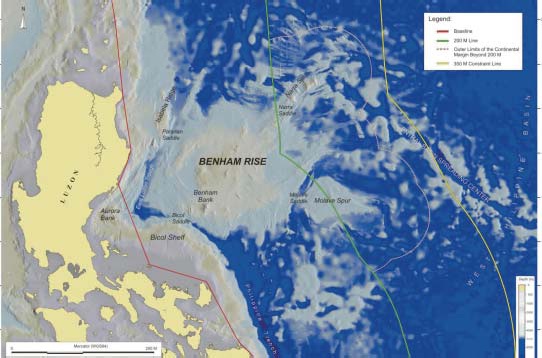The Chinese government cannot conduct seismic surveys to look for oil, gas and minerals at Benham Rise, Supreme Court Senior Associate Justice Antonio Carpio said in a statement.
Carpio, who was part of the Philippine delegation that argued before the United Nation’s Permanent Court of Arbitration (PCA) in 2015 and tapped by President Rodrigo Duterte as consultant in the territorial issues with China, said the United Nations Convention on the Law of the Sea (UNCLOS) has reserved the oil, gas and mineral in the Extended Continental Shelf (ECS) to the Philippines.
The magistrate said that while Benham Rise is not part of the Philippine national territory, the UN Commission on the Limits of the Continental Shelf confirmed that it is part of the ECS of the Philippines.
“We have sovereign rights over it because we have exclusive right to explore and exploit the oil, gas and other mineral resources in the area,” Carpio said.
“If the Chinese vessels were conducting seismic surveys to look for oil, gas and minerals, then they could not do that because UNCLOS has reserved the oil, gas and minerals in the ECS to the Philippines,” Carpio added.
But Carpio said other states like China have the right to conduct fishery research in Benham Rise “because the fish in ECS belongs to mankind.”
Aside from fishery research, he said other countries like China can also conduct surveys on water salinity and water currents because the water column in the ECS also belongs to mankind.
China and other countries are also allowed to conduct depth soundings for navigational purposes because there is freedom of navigation in the ECS.
“If the Chinese vessels were looking for submarine passages and parking spaces, that would be part of freedom of navigation and the Philippines has no reason to complain,” Carpio added.
There are recent reports that Chinese ships have been conducting oceanographic research in Benham Rise located about 250 kilometers east of Dinapigue, Isabela.
Justice Carpio is the one who wrote the SC decision that unanimously affirmed the constitutionality of the Philippine Archipelagic Baselines Law of 2009 which determine the Philippines 200-nautical-mile exclusive economic zone (EEZ).
